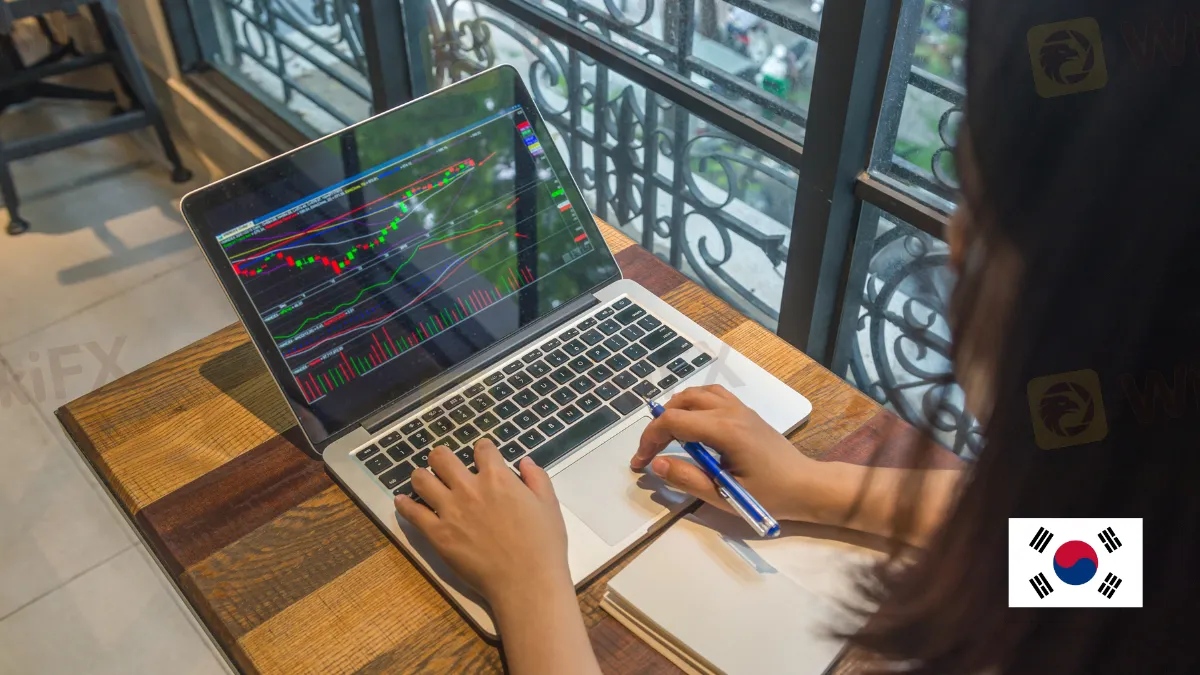简体中文
繁體中文
English
Pусский
日本語
ภาษาไทย
Tiếng Việt
Bahasa Indonesia
Español
हिन्दी
Filippiiniläinen
Français
Deutsch
Português
Türkçe
한국어
العربية
South Korea Extends Forex Trading Hours in Soft Launch
Abstract:South Korea is extending won-dollar forex trading hours from 9 a.m. to 2 a.m. to enhance traceability and attract global investors, maintaining stability and ample liquidity.

South Korea's extended forex trading hours for won-dollar transactions started successfully on Monday, according to the country's financial regulators. The move intends to increase the currency's trading availability and attract worldwide investors by expanding trading hours from 9 a.m. to 2 a.m., up from 9 a.m. to 3:30 p.m. before.
Choi Sang-mok, Deputy Prime Minister and Minister of Economy and Finance, paid a visit to KEB Hana Bank's headquarters in Seoul on Monday night, together with Bank of Korea Deputy Governor Ryoo Sang-dai. They examined the first day's trade under the revised timetable.
Choi noted that this structural change would connect Korea's forex market with global norms, increasing its openness and competitiveness. He emphasized that the government will continue to help local banks to ensure that these reforms occur smoothly.
Ryoo emphasized the role of domestic financial institutions in ensuring market stability throughout these changes. He emphasized that the government would continuously watch market patterns to guarantee stability.

Total spot trading volume for the first day of extended hours was $12.57 billion, with $2.46 billion transacted between 3:30 p.m. Monday and 2 a.m. Tuesday. According to the Bank of Korea, the average hourly trading volume from 9 a.m. to 3:30 p.m. was $1.56 billion, while the amount from 3:30 p.m. to 2 a.m. was $230 million.
Although trading volume declined dramatically during the extended hours, regulators highlighted that this trend is similar to other foreign currencies, which typically have lower volumes at night. Despite fears about heightened volatility, the market remained liquid and had a tight bid-ask spread.
The expanded trading hours are part of a larger effort to improve Korea's forex market and make it more accessible to international investors. This approach is also likely to enhance the long-term pricing differential between onshore and offshore exchange rates.
Kwan Ah-min, an analyst at NH Investment & Securities, said that better market access may attract more money, particularly in light of Korea's anticipated participation in the FTSE World Government Bond Index in September. This inclusion is part of the government's reform initiatives, with increased hours playing a crucial role.
Korea and India are now the only two nations in the world's top ten economies by nominal GDP that do not appear in this major bond index.
By 5 p.m. Monday, the Korean won had dropped 4.3 won to 1,388.8 per dollar.
Stay updated with the latest in the forex market! Get daily insights and news here.

Disclaimer:
The views in this article only represent the author's personal views, and do not constitute investment advice on this platform. This platform does not guarantee the accuracy, completeness and timeliness of the information in the article, and will not be liable for any loss caused by the use of or reliance on the information in the article.
Read more

OctaFX Flagged by Malaysian Authorities
OctaFX has been officially listed on warning lists by both Bank Negara Malaysia (BNM) and the Securities Commission Malaysia (SC). These alerts raise serious concerns about the broker’s status and whether it is legally allowed to operate in Malaysia.

Why Your Worst Enemy in Trading Might Be You
Be Honest With Yourself: Are You Slowly Destroying Your Trading Account?

TradingPRO: A Closer Look at Its Licences
In an industry where safety and transparency are essential, the regulatory status of online brokers has never been more important. For traders seeking to protect their capital, ensuring that a platform operates under recognised and stringent oversight can make all the difference. Keep reading to learn more about TradingPRO and its licenses.

Oil Price Breakout Incoming? Investors Should Stay Alert
Oil prices are hovering around a critical level, with potential yet to be fully unleashed. Investors must prepare for sudden changes.
WikiFX Broker
Latest News
SkyLine Guide 2025 Malaysia: 100 Esteemed Judges Successfully Assembled
Vantage Markets Review 2025: Trusted Forex and CFD Trading Since 2009
Why STARTRADER Is Popular Among Traders?
A Guide to Intraday Forex Trading You Can't Miss Out
CONSOB Blocks Access to 13 Unauthorized Investment Websites
TradingPRO: A Closer Look at Its Licences
The world could be facing another ‘China shock,’ but it comes with a silver-lining
New SEBI Regulations on Intraday Trading
Everything You need to know about Barath Trade
IronFX Broker Review 2025: A Comprehensive Analysis of Trustworthiness and Performance
Currency Calculator


